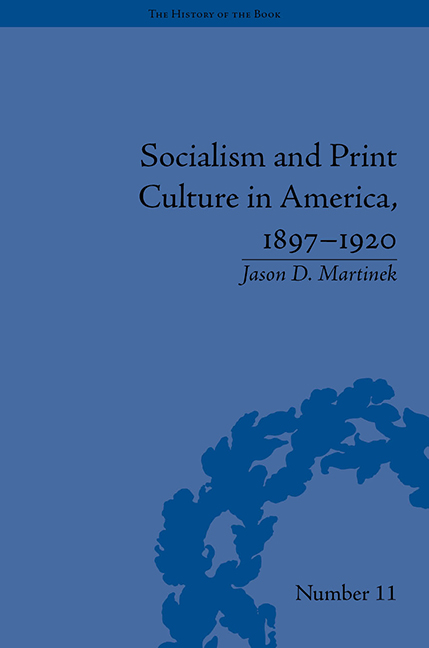Book contents
- Frontmatter
- CONTENTS
- List of Figures and Tables
- Acknowledgements
- Introduction: ‘Workers of the World, Read!’
- 1 ‘The Workingman's Bible’ and the Making of American Socialism
- 2 Charles H. Kerr & Company and the Americanization of Marxian Socialism
- 3 Activist Readers and American Socialists' Print Culture of Dissent
- 4 How the Socialist Party Created a Print Culture of Dissent without a Party-Owned Press
- 5 Information Management and the Socialist Party's Information Department and Research Bureau
- 6 Annotations on the Failure of Socialism in America
- 7 Conclusion: What a Book Cannot Do
- Notes
- Works Cited
- Index
5 - Information Management and the Socialist Party's Information Department and Research Bureau
- Frontmatter
- CONTENTS
- List of Figures and Tables
- Acknowledgements
- Introduction: ‘Workers of the World, Read!’
- 1 ‘The Workingman's Bible’ and the Making of American Socialism
- 2 Charles H. Kerr & Company and the Americanization of Marxian Socialism
- 3 Activist Readers and American Socialists' Print Culture of Dissent
- 4 How the Socialist Party Created a Print Culture of Dissent without a Party-Owned Press
- 5 Information Management and the Socialist Party's Information Department and Research Bureau
- 6 Annotations on the Failure of Socialism in America
- 7 Conclusion: What a Book Cannot Do
- Notes
- Works Cited
- Index
Summary
In 1913, the Socialist Party created the Information Department and Research Bureau to serve the burgeoning movement's information needs. Compared to the hierarchical information management protocols of major corporations and universities, the Information Department represented a profoundly democratic foray into this area. Carl D. Thompson, the director of the Information Department, sought to use his position to turn the class struggle into a struggle over facts. Indeed, in his effort to push socialist theory into the realm of praxis, he relied on facts to demonstrate the efficacy of socialist propositions. Facts, he argued, proved the benefits of public ownership over private, socialism over capitalism. In his work, Thompson eschewed the emotional appeals that sought to win readers over through epiphany and revelation. Instead, he looked to help socialists win the class struggle through reason and rationality. Though his fact-based initiatives never eclipsed the emotional appeals that proved so instrumental in building the movement, Thompson's efforts were nonetheless significant in their attempt to better ground socialism in real world politics. Ultimately, however, a lack of financial resources ended this experiment in information management and served as a harbinger for the decline of the Socialist Party in the late 1910s.
Since Thompson's information came from an avowedly pro-socialist position, it is easy to dismiss him as a propagandist and the Information Department as the party's chief propaganda arm.
- Type
- Chapter
- Information
- Socialism and Print Culture in America, 1897–1920 , pp. 97 - 114Publisher: Pickering & ChattoFirst published in: 2014



